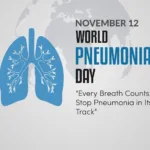Geneva- New research from the World Health Organization (WHO) and the International Labour Organization (ILO) reveals a concerning correlation between outdoor work and non-melanoma skin cancer deaths. The journal Environment International, in its publication, underscores that occupational sun exposure is responsible for almost one-third of these fatalities.
Non-Melanoma Skin Cancer death counts
In 2019, 1.6 billion working-age individuals, constituting 28% of the global workforce, faced solar ultraviolet radiation exposure. Shockingly, nearly 19,000 people across 183 countries died from non-melanoma skin cancer in the same year due to occupational sun exposure, with the majority being male (65%).
Dr. Tedros Adhanom Ghebreyesus, WHO Director-General, stated that unprotected exposure to solar ultraviolet radiation at work constitutes a major cause of occupational skin cancer. “But there are effective solutions to protect workers from the sun’s harmful rays and prevent their deadly effects,” he added.
The research also highlights occupational exposure to solar ultraviolet radiation as the third-highest work-related risk factor leading to global cancer deaths. Furthermore, skin cancer deaths linked to this exposure nearly doubled from 2000 to 2019, reflecting an 88% increase, rising from 10,088 deaths to 18,960 deaths. This underscores the concerning upward trend in the impact of occupational solar radiation on skin cancer mortality.
“At work, ensuring a safe and healthy working environment is a fundamental right,” said Gilbert F. Houngbo, ILO Director-General. “Death caused by unprotected exposure to solar ultraviolet radiation while working is largely preventable through cost-effective measures. It is urgent that governments, employers and workers and their representatives work together in a framework of well-defined rights, responsibilities and duties to reduce the occupational risk of UV exposure. This can save thousands of lives every year.”
Also Read: Do Second-Hand Car Imports Pose a Serious Health Threat in Africa?
Furthermore, To address this critical issue, the WHO, ILO, World Meteorological Organization, and the United Nations Environment Programme have introduced the SunSmart Global UV App. This tool allows outdoor workers to estimate their solar ultraviolet radiation exposure, promoting awareness and proactive protection against skin cancer risks.




















